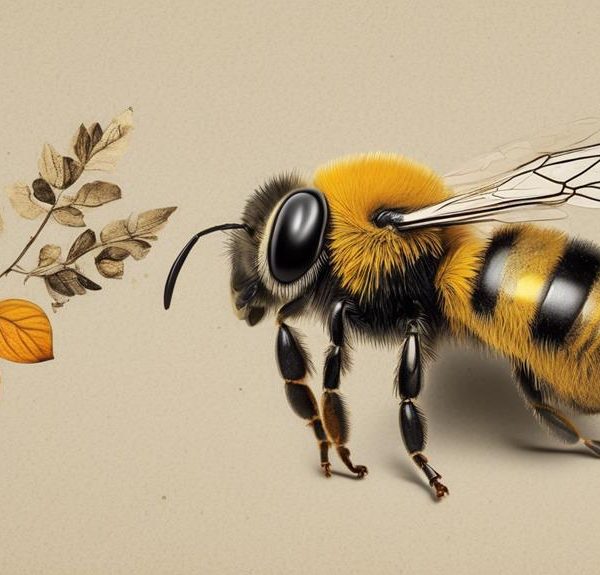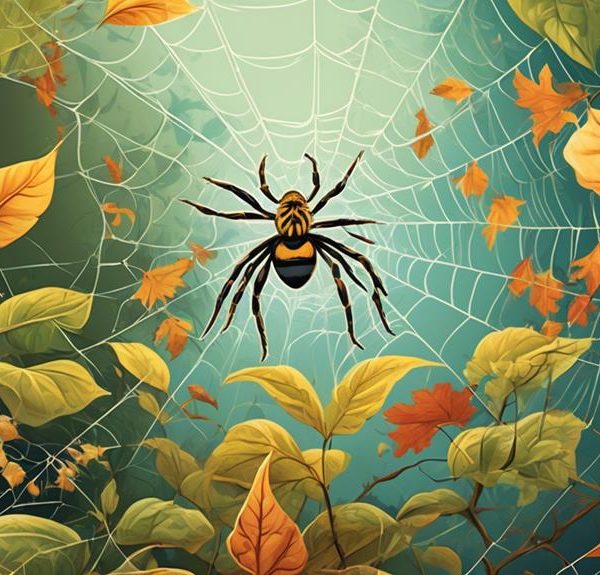Troubled by oddly snipped roses? Discover the surprising truth about the relationship between leaf cutter bees and your beloved blooms.
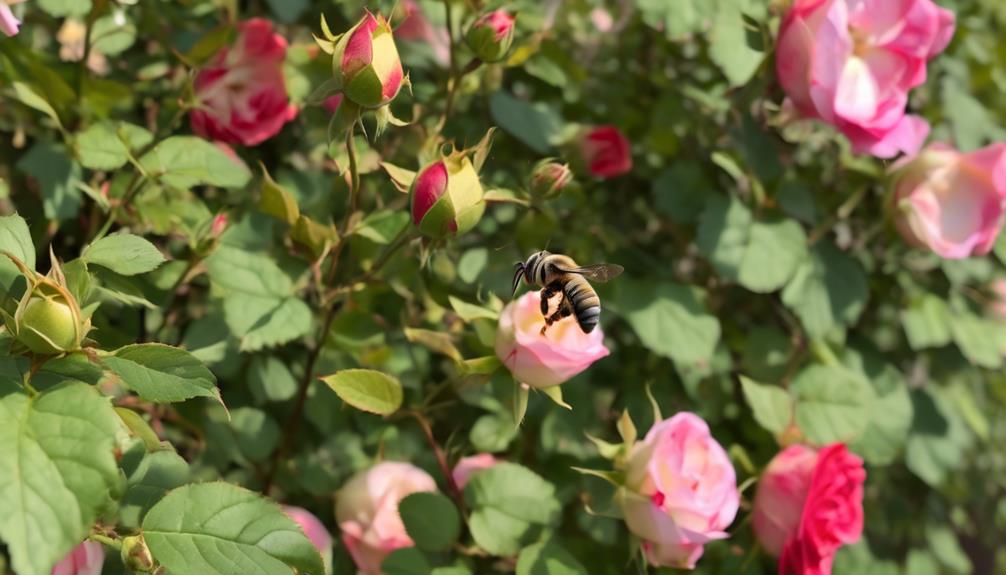
Do Leaf Cutter Bees Harm Roses
You've likely seen the aftermath of a leaf cutter bee's work: roses looking as if they've been delicately snipped by a pair of miniature scissors. You might feel a pang of frustration that your beautiful blooms have been used as construction material for a bee's nest. It's a common concern among gardeners and rose enthusiasts alike.
But do these industrious insects really pose a threat to your roses, or could they actually be beneficial in some way? The answer might surprise you.
Let's explore this further.
Key Takeaways
- Leaf cutter bees do not cause significant damage to rose plants.
- The presence of leaf cutter bees can improve pollination in rose bushes.
- Leaf cutter bees are non-aggressive and rarely sting.
- Mitigation strategies, such as creating decoy plants and providing alternative nesting sites, can help manage leaf cutter bee populations in rose gardens.
Understanding Leaf Cutter Bees
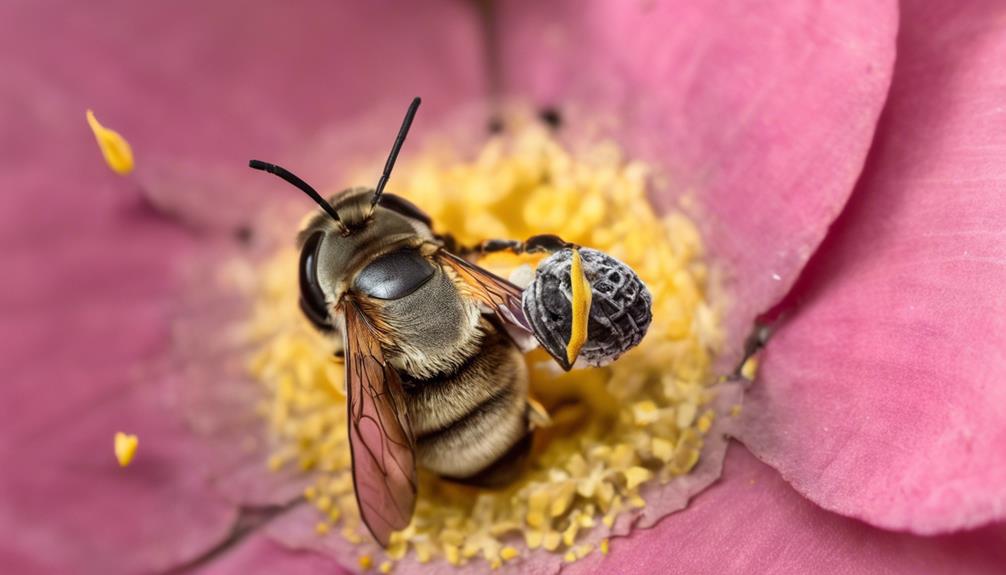
You might be intrigued to learn that leaf cutter bees, scientifically known as Megachilidae, are solitary insects renowned for their unique behavior of cutting neat circles out of leaves. Unlike honeybees, which live in colonies, each leaf cutter bee operates independently, carving out its own niche in the ecosystem.
These bees aren't just diligent cutters; they're skilled builders, too. They use the leaf fragments to construct intricate nests, often in hollow stems or dead wood. Each nest compartment is stocked with a mixture of nectar and pollen, creating a perfect incubator for their eggs.
Leaf cutter bees are also recognized as valuable pollinators. As they forage for nectar, pollen sticks to the hairs on their abdomen, which is then transferred from flower to flower, aiding in plant fertilization.
It's important to note, however, that these bees don't intentionally harm plants. Their leaf-cutting activities typically cause minimal damage and don't significantly impact a plant's health or growth. So, while you might initially be dismayed to find cut leaves in your garden, you can rest easy knowing that these industrious insects are more beneficial than harmful.
The Leaf Cutter's Impact on Roses
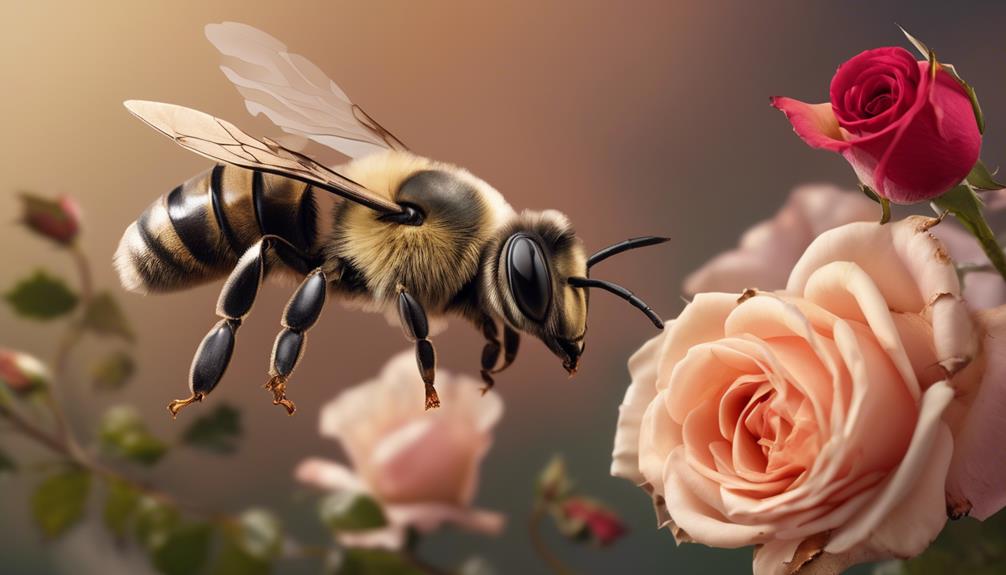
Despite their generally benign nature, leaf cutter bees' activities can sometimes have a noticeable effect on rose plants. You might observe circular or semi-circular notches on the edges of the leaves. This is the handiwork of the leaf cutter bee.
Don't panic though. The bees aren't feasting on your roses. They're actually using the leaf material to build their nests. Each bee cuts off a piece of leaf, rolls it into a tube, and lays an egg inside before sealing it off. This process is repeated until the nest is full.
While this behavior can leave your roses looking a bit ragged, it's important to remember that leaf cutter bees don't cause significant damage to the plants. They take only what they need and the plant continues to photosynthesize with the remaining leaf surface.
In fact, the bees' presence can be beneficial. They're excellent pollinators, even more efficient than honey bees. Therefore, while leaf cutter bees may affect the aesthetic of your roses, the trade-off is improved pollination and a more vibrant garden.
Leaf Cutter Bee: Friend or Foe?
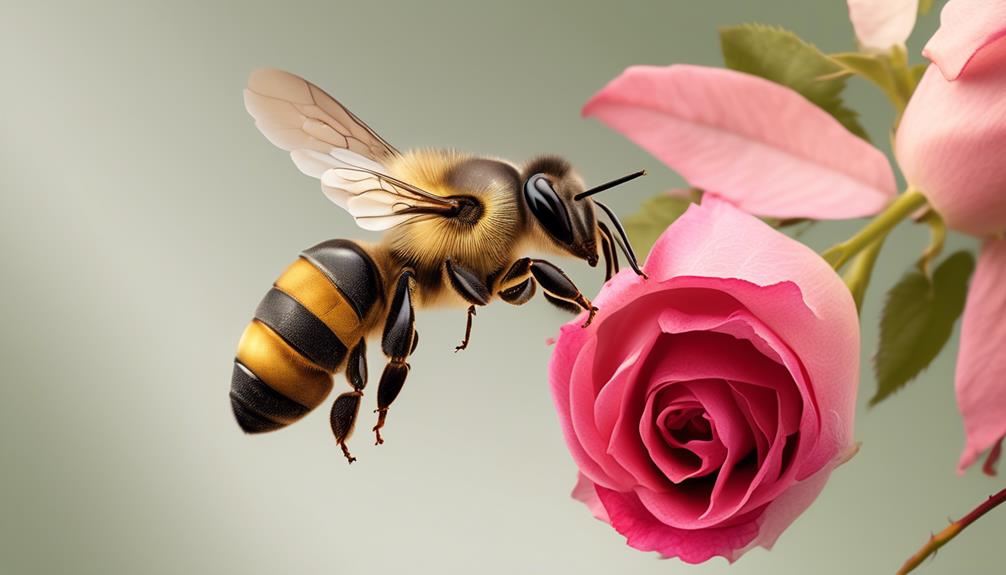
Given the unique relationship between leaf cutter bees and rose plants, it's worth considering whether these insects should be viewed as pests or allies in your garden. While they might cause some cosmetic damage, these bees play a critical role in the ecosystem.
You might be surprised to learn that leaf cutter bees are prolific pollinators. They're known to visit a wide range of plants, including your roses, ensuring their propagation. They're solitary creatures, non-aggressive, and rarely sting, making them safe around children and pets.
However, their signature leaf-cutting behavior can leave your rose bushes appearing ragged. This is merely cosmetic, and doesn't harm the plant's overall health or ability to bloom.
To further illustrate, consider the table below:
Leaf Cutter Bees | Pros | Cons |
|---|---|---|
Pollination | Excellent pollinators, crucial for plant propagation | – |
Behavior | Non-aggressive, rarely sting | Can cause cosmetic damage to plants |
Place in Ecosystem | Crucial role in maintaining biodiversity | – |
Impact on Roses | Do not harm plant's health or ability to bloom | Leave ragged appearance |
Thus, it's up to you to decide: are leaf cutter bees friends or foes to your roses?
Mitigation Strategies for Leaf Cutters
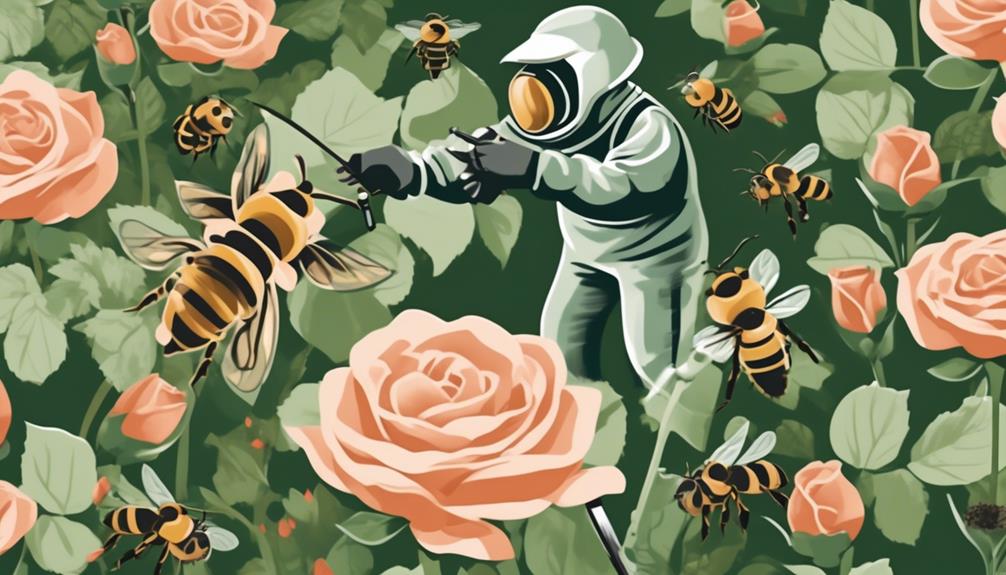
Managing leaf cutter bees in your garden involves understanding their habits and implementing strategies that deter them from damaging your roses, while still fostering their pollination activities.
Firstly, observe the bees' activities closely. Leaf cutters prefer certain types of leaves, so you can plant their favorites away from your roses, effectively creating a decoy plant. You'll need to ensure these plants are closer to their nesting sites to be more attractive.
Secondly, provide an alternative nesting site. Leaf cutters nest in soft, rotting wood. By providing a suitable nesting environment, you're reducing the likelihood of them nesting in your roses. Consider installing a bee house, which can be easily purchased or made.
Thirdly, limit the use of pesticides. These substances can harm leaf cutter bees and other beneficial insects. Instead, opt for organic or natural pest control methods.
Lastly, encourage natural predators. Birds like sparrows and finches can help control leaf cutter bee populations.
Promoting Bee-Friendly Gardening Practices
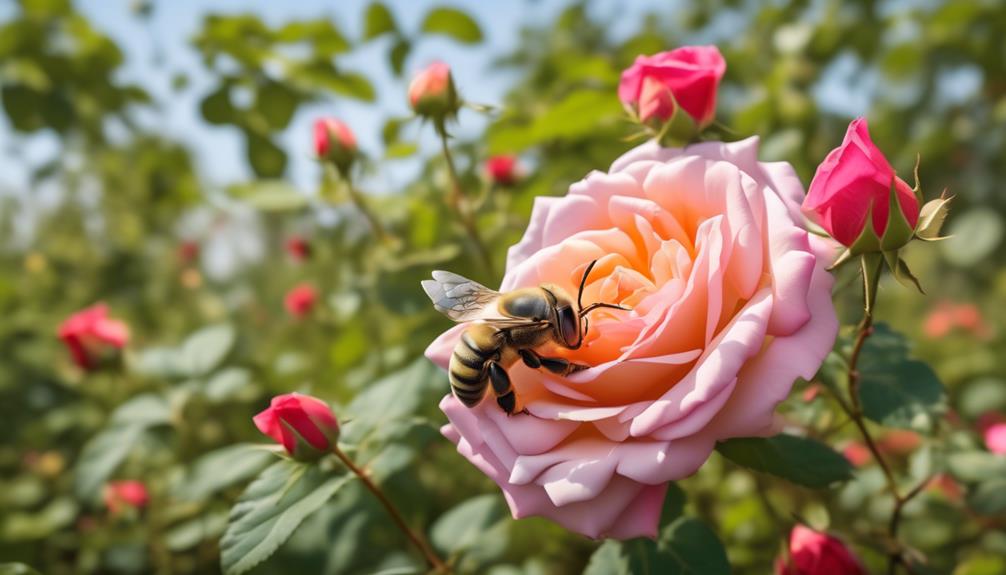
To foster a bee-friendly garden, you'll need to incorporate practices that attract and safeguard these vital pollinators.
Start by providing a diverse range of native plants, which are more likely to be beneficial to local bees. Blooms of varying shapes and sizes attract different species and provide a constant food source throughout the season.
Avoid using pesticides or, if necessary, opt for organic or low-impact options. Many common garden chemicals are harmful to bees, interfering with their navigation or even causing death.
It's also crucial to provide clean water sources, such as a shallow dish with pebbles for landing spots.
Next, consider the habitat. Some bees, like the leaf cutter, nest in small cavities or in the ground. Leaving some bare soil patches and installing bee hotels can offer them suitable nesting sites.
Lastly, you can contribute to bee conservation by participating in citizen science projects. Monitor your garden's bee population and report your observations to local environmental agencies. This not only aids in research but also helps track bee health and diversity.
Conclusion
Despite their disconcerting behavior, leaf cutter bees aren't your roses' enemy. Yes, they create holes, but they don't harm the overall health or growth of your roses. Instead, they're beneficial pollinators, enhancing your garden's productivity.
If their activities become too noticeable, simple mitigation strategies can help. Embrace these bees, promote bee-friendly gardening practices, and enjoy a thriving, biodiversity-rich garden.
Remember, a garden with leaf cutter bees is a garden in balance.

